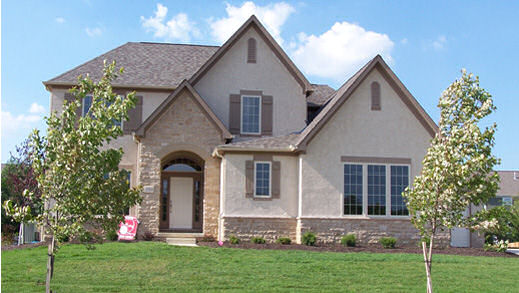Buying a House? What You Need To Know About Home Inspections

Home inspections are a necessity when you’re buying a house. The bank that you’re obtaining your mortgage through will more than likely require one. These inspections are done to ensure that the house you’re purchasing is in good condition. Since the house is essentially the collateral for the mortgage loan, it’s no surprise that lenders insist on having these home inspections conducted.
Home Inspections: What Are They?
A general home inspection is completed before the mortgage paperwork is signed. If the bank didn’t require that one is done, it’s the future homeowner’s job to speak up and ask for a home inspection. There are a number of things that the inspector looks for, all of which fall into nine distinct categories. Thorough home inspections examine:
- Insulation – The home’s visible insulation is scrutinized. This is usually in the attic and the basement, although it could at any place in the house where the insulation is visible.
- Electrical systems – This means that every outlet, connection, service panel, and piece of visible wiring will be thoroughly looked at. Your future home’s grounding systems are a part of this as well.
- Plumbing – The pipes on all levels of the home are examined, as well as any fixtures. This includes faucets, toilets, tubs, sinks, and more.
- Roof – The roof of the house is incredibly vital, which is why home inspectors spend so much time examining the shingles and gutters.
- Interior – An inspection of the interior of a house includes appliances, walls, smoke detectors, stairs (and related banisters), built-in shelves, fireplaces, and just about anything that’s included in the sale and located inside the house itself.
- Attic – The interior side of the roof is gone over, looking at the joists, any wiring, ventilation systems, and more.
- Exterior – A review of the exterior of a home looks at things like the windows and casements, the siding, and anything built onto the house, such as a porch or deck.
- Basement and foundation – In homes that don’t have a basement to inspect, the crawl spaces are examined. Also, the foundation is a major part of this.
- Furnace and air conditioners – The house’s heating and cooling systems are checked for damage, leaks, and other issues.
Also, home inspections test for mold, radon gas, carbon monoxide, and other very serious problems. Of course, this is just a brief overview. The home inspector will look at everything both inside and outside of the home. If it’s attached to the house, it will be examined.
What Happens After The Home Inspection?
Once the inspection is complete, you’ll receive a complete report from the home inspector. This will include a discussion of everything that was examined in extreme detail. The average home inspection finds around 50 to 100 issues. Don’t be alarmed by this. Many of the issues are very small and can be fixed quickly and easily.
However, others are on the larger side. Remember that home inspectors look at any potential trouble source. If they find anything, then it’s up to the current homeowner and the future buyer to determine a cause of action. This could range from having the issue fixed before the house changes hands to knocking some money off of the selling price so that the future buyer can handle the repairs.
In extreme cases, the potential sale of the home will be canceled. This really only happens if catastrophic problems are uncovered, such as a very cracked foundation that undermines the house’s stability.
Hiring Certified Home Inspectors
Home inspectors need to be properly trained and certified – not just anyone can do the job. These requirements vary widely depending on the state that you’re located in. In Colorado, a certification course and some on the job training is required. Home inspectors need to know what to look for when examining every inch of a house.
After all, this is your future home! You don’t want to be caught off guard when a problem erupts shortly following taking possession of it. (Mortgage lenders don’t like that either.) This is why you need to have your property thoroughly inspected by a professional company, like Pro-Check Home Inspections.
Choose Pro-Check Home Inspections Colorado Springs Co
Every professional inspector from Pro-Check Home Inspections adheres to a certain set of ethics. This means that you’re getting an honest inspection. Our home inspectors are all fully certified, meaning that they are proven capable of finding the defects (if any) in your home. We handle home inspections Colorado Springs Co for mortgage lending purposes, as well as for other reasons, including suspected mold and radon gas. We handle pre-listing inspections that go over the entire house before it’s placed on the market. When you hire Pro-Check, you know that you’re getting the best!

